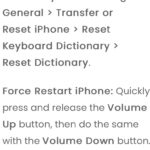It’s a common sight for cat owners to witness their feline friend occasionally throwing up. However, while it might seem like a normal part of cat behavior, frequent vomiting, especially right after eating, is not something to be ignored. If your cat is throwing up regularly, it’s crucial to understand why and when it warrants a visit to the veterinarian.
Common Reasons for Cat Vomiting After Eating
There are several reasons why your cat might be vomiting shortly after they eat. Some are related to their eating habits, while others could indicate underlying health issues.
Eating Too Quickly or Too Much
Just like humans, cats can sometimes eat too fast or consume a larger portion than their stomach can comfortably handle at once. This rapid intake can lead to regurgitation or vomiting shortly after mealtime. When a cat eats too quickly, they may swallow air along with their food, which can also contribute to vomiting. Providing smaller, more frequent meals or using slow-feeder bowls can help to regulate their eating pace and reduce the likelihood of vomiting.
Diet Changes or Food Intolerance
A sudden change in your cat’s diet can also upset their stomach and lead to vomiting. Cats have sensitive digestive systems, and introducing new food too quickly can cause gastrointestinal distress. It’s always recommended to transition to a new cat food gradually, mixing increasing amounts of the new food with the old food over a period of 7-10 days. Additionally, some cats may have food intolerances or sensitivities to certain ingredients in their food, which can also manifest as vomiting. Common culprits include certain proteins or grains.
Hairballs
Grooming is a natural and essential behavior for cats, but it can sometimes lead to hairballs. As cats groom themselves, they ingest loose fur, which can accumulate in their stomach. When these hairballs become too large to pass through the digestive system, cats will often vomit them up. While occasional hairballs are normal, frequent hairballs, especially accompanied by vomiting after eating, might suggest an issue. Regular brushing can help minimize hairballs, and there are also hairball remedies available over-the-counter that can aid in their passage.
Eating Something They Shouldn’t (Foreign Objects)
Cats are curious creatures, and sometimes their curiosity can lead them to ingest things they shouldn’t. Small objects like string, rubber bands, or pieces of toys can be swallowed and cause irritation or blockage in their digestive tract, leading to vomiting. If you suspect your cat has eaten a foreign object and is vomiting after eating, it’s crucial to seek veterinary attention immediately.
When Vomiting After Eating is a Sign of a Serious Problem
While some instances of vomiting after eating might be benign, persistent or frequent vomiting can be a sign of more serious underlying health conditions. These conditions require veterinary diagnosis and treatment. Some of these serious conditions include:
- Foreign objects in their digestive tract: As mentioned earlier, these can cause blockages and severe illness.
- Food allergies: Unlike food intolerance, food allergies involve an immune system response and can cause more severe symptoms, including vomiting.
- Poisoning: Ingesting toxins or poisonous substances can cause rapid and severe vomiting.
- Intestinal Parasites: Parasites can irritate the digestive system and lead to vomiting.
- Inflammatory Bowel Disease (IBD): A chronic inflammatory condition of the digestive tract.
- Diabetes: This metabolic disorder can sometimes manifest with vomiting.
- Hyperthyroidism: An overactive thyroid gland can lead to various symptoms, including vomiting.
- Kidney Disease: Kidney problems can cause a buildup of toxins in the body, leading to nausea and vomiting.
- Cancer: In some cases, cancer in the digestive system or elsewhere in the body can cause vomiting.
Signs to Watch For and When to See a Vet
It’s important to monitor your cat for any additional signs that might accompany their vomiting, especially if it’s happening frequently after eating. Seek veterinary attention if you observe any of the following along with vomiting:
- Lethargy or Depression: A noticeable decrease in energy levels or a change in their usual demeanor.
- Change in Appetite or Eating Habits: Loss of appetite, refusal to eat, or significant changes in eating patterns.
- Weight Loss: Unexplained weight loss can be a sign of an underlying health issue.
- Blood in their Vomit: This is a serious sign and requires immediate veterinary attention.
- Pain in their Abdomen: If your cat reacts painfully when you gently touch their belly.
- Frequent Vomiting: Vomiting more than once a week or consistently over a few weeks is not normal.
- Changes in Diet: Note any recent changes in their food.
- Access to Plants or Other Substances: Consider if they might have ingested something toxic.
- If Other Pets are Affected: If other animals in your household are also showing similar symptoms.
Providing your veterinarian with a detailed history of your cat’s symptoms, including the frequency of vomiting, when it occurs in relation to eating, and any other accompanying signs, will be invaluable in helping them diagnose the cause and recommend the appropriate treatment plan. Don’t hesitate to contact your vet if you are concerned about your cat’s vomiting – early detection and intervention are key to ensuring their long-term health and well-being.
